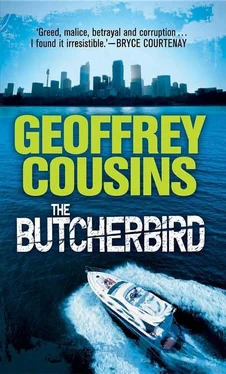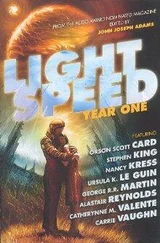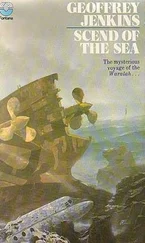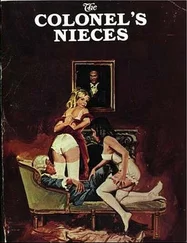Geoffrey Cousins - The Butcherbird
Здесь есть возможность читать онлайн «Geoffrey Cousins - The Butcherbird» весь текст электронной книги совершенно бесплатно (целиком полную версию без сокращений). В некоторых случаях можно слушать аудио, скачать через торрент в формате fb2 и присутствует краткое содержание. Жанр: Триллер, на английском языке. Описание произведения, (предисловие) а так же отзывы посетителей доступны на портале библиотеки ЛибКат.
- Название:The Butcherbird
- Автор:
- Жанр:
- Год:неизвестен
- ISBN:нет данных
- Рейтинг книги:5 / 5. Голосов: 1
-
Избранное:Добавить в избранное
- Отзывы:
-
Ваша оценка:
- 100
- 1
- 2
- 3
- 4
- 5
The Butcherbird: краткое содержание, описание и аннотация
Предлагаем к чтению аннотацию, описание, краткое содержание или предисловие (зависит от того, что написал сам автор книги «The Butcherbird»). Если вы не нашли необходимую информацию о книге — напишите в комментариях, мы постараемся отыскать её.
The Butcherbird — читать онлайн бесплатно полную книгу (весь текст) целиком
Ниже представлен текст книги, разбитый по страницам. Система сохранения места последней прочитанной страницы, позволяет с удобством читать онлайн бесплатно книгу «The Butcherbird», без необходимости каждый раз заново искать на чём Вы остановились. Поставьте закладку, и сможете в любой момент перейти на страницу, на которой закончили чтение.
Интервал:
Закладка:
He was struggling with the detail, or lack of it, in a thick pile of contracts Renton had dropped on his desk. He’d wanted to examine the quantum of HOA’s payments to outside contractors, but instead of an analysis he’d been given all the legal contracts. His initial browsing had been disturbing. The monies involved were way beyond what he’d expected, and some of the contracts were vague in the extreme; the description of the services to be provided was so broad as to be meaningless.
The further he dug down into the papers the more alarmed he became. Some of these matters he would raise at the board meeting next week. Others would require more intense scrutiny. But he wasn’t going to let it go. He’d sell the story better than anyone, but it was going to be his story.
‘Thank you, gentlemen. The hour is past. We have a quorum so let me call the meeting to order.’
Sir Laurence’s prim tones relayed antiseptically through the next-generation German sound system, bounced dully off the silk-lined boardroom walls and fell mainly on deaf ears. As he glanced around the U-shaped table, he was reminded that the ‘gentlemen’ was no longer entirely appropriate. His slightly bloodshot eyes fell on the brightly coloured plumage of Rosemary Stipple, the headmistress of the private school that one of Mac’s daughters had attended. She’d recently joined the board at Mac’s insistence, despite Sir Laurence’s strong objections that she had no business experience of any kind and had never been on any other board except that of the Sydney Symphony Orchestra-and only because her husband was a major benefactor. The market would see her as no more than a sycophantic supporter of Macquarie James Biddulph and a sop to political correctness and would deride the appointment. So said Sir Laurence. Mac had just laughed.
‘The market follows me, Laurence. They couldn’t care less who’s on the board.’ Sir Laurence’s lips curled slightly at the left corner at this remark. ‘All that corporate governance crap is just for the annual report and the regulator. Anyway, Rosemary is a woman.’
On this last point Sir Laurence wasn’t entirely convinced. She appeared to be dressed at present in the plumage of a rainbow lorikeet. He’d always understood it was the male bird that wore the brightest colours. In any event, she might not be a man but if she wanted to be a member of his board she would have to do her best.
‘Gentlemen. If we could please.’ He tapped the small microphone in front of him with his silver pen. The sound reverberated through the fifteen miniature speakers in the ceiling and finally penetrated the consciousness of his distinguished board members. They were all in their customary places. It had always fascinated him the way some process of natural selection caused people to occupy the same seats in a meeting room even though there were no allocated places. It was a ritual dance, a pecking order. As far as he was concerned, so long as they all understood that the chairman’s seat was at the head of the table, they could scatter where they liked.
‘The minutes of the meeting of February the fifteenth. Any comments?’
There were never any comments on the minutes. The directors were acutely aware that at least four or five drafts would have passed across the antique partners’ desk in Sir Laurence’s office in a flurry of neatly pencilled corrections before they were finally allowed, reluctantly, into the voluminous bound volume that comprised a set of HOA board papers. This document was delivered by courier to the office or home of each director in a sealed security pouch and had to be signed for by the recipient before it was released. Sir Laurence had considered locked and chained red boxes in the tradition of Westminster, but had rejected this as perhaps too governmental. Nevertheless, he insisted on the intricate sealing device which required a tough plastic tab to be broken-often at the expense of Rosemary Stipple’s fingernails or Justin Muir’s temper-just as he did on the sweeping of this room for bugs before every meeting. You could never be too careful.
‘Shouldn’t we wait to get Mac on the line, Laurence?’ To the casual observer, Jack’s question was a harmless observation. To Laurence Treadmore it contained a quiver of sharp insults. It failed to address him as chairman-the proper appellation in a boardroom. It then failed to recognise his everyday title, a title conferred on him by the Queen of Australia. It came from someone who, while purporting to be the chief executive of a major public company, wasn’t even wearing a tie let alone a jacket in his boardroom. He’d already discussed the question of the tie with Mac but he’d just laughed it off, saying, ‘We all have our own style, Laurence, even you. Who cares so long as the market loves him?’
He refused to look directly at Jack as he answered-but then he never looked directly at him or addressed him by name.
‘I understand we’re having difficulty establishing a connection to the Kimberley. Perhaps the secretary could ask our technician to step in.’
The rest of the board resumed checking their diaries and phone messages in a series of electronic beeps, despite the chairman’s clear ruling that no such devices were to be switched on during a meeting. Only Sir Laurence noticed the totally inappropriate exchange of ‘G’day Tom’ and ‘Hi Jack, how are you?’ between the technician and the CEO. This type of familiarity between management and workers could only lead to trouble.
Crackles and static began to emanate from the doughnut-shaped speakerphone in the middle of the table and finally they heard the unmistakable tones of Mac.
‘We have him now, Sir Laurence.’
‘Thank you. You may leave us. Good morning, Mac, we have you now, although I must say the line isn’t particularly good, there’s still a great deal of static. Is there stormy weather in the Kimberley?’
Mac laughed from the gut. ‘Stormy weather? It’s the dry season. It doesn’t rain for months. I’m in the shower, Laurence, that’s the noise you can hear, and a bloody good shower it is, too. Biggest head on it you’ve ever seen. Had it brought over from England. How are you all?’
The distasteful nature of this exchange caused both corners of the Treadmore mouth to curl-usually a dangerous sign. This constant failure to attend board meetings in person, no doubt a complete absence of any attempt to read the papers and now to attend in a state of undress, even by phone, was beyond any pale Sir Laurence could conjure. How could two such distinctly opposing personalities survive together? The answer, as both were acutely aware, lay in the bonding power of money. It was the Araldyte of their relationship, whose unique properties could cause any two surfaces to adhere, no matter how uneven.
Mac, wrapped in an outsized white bath towel, sprawled in a massive colonial wicker armchair in the shade of the double-width verandah. Everything at Bellaranga was enormous. You could fly over its million acres in a helicopter for a couple of hours and still be on the property. The views were infinite-from the beginning to the end of the world in time and space was how Mac phrased it when he was in a lyrical mood. Some of the oldest artworks in the world were on this place, painted on the walls of rock caves by peoples unknown; some said the Australian Aborigines, some said not. To Mac it was irrelevant. They were graceful, elegant, tasselled figures with extraordinary headdresses, painted with exceptional skill, as alive on the rock face now as they would have been over twenty thousand years ago. One of Mac’s prized showpieces was a small Matisse oil with dancing figures. He reckoned Matisse must have been to Bellaranga.
How he wished his old dad could see him now, the lord of this domain and the other world on the end of the telephone. He’d never believe it. One of the European migrants who’d brought their skills to help build the Snowy Mountains Scheme, his father became more proudly Australian than any native born. He named his son after Governor Lachlan Macquarie and added James, as English a name as he could imagine. Mac still saw him sometimes, walking away from him down a Sydney street or cupping his hands to light a cigarette in a pub doorway. He remembered the line into the small church in Auburn and the crowd stretching away under the trees at the graveyard. He’d never seen half these people before, yet they all knew Ja.
Читать дальшеИнтервал:
Закладка:
Похожие книги на «The Butcherbird»
Представляем Вашему вниманию похожие книги на «The Butcherbird» списком для выбора. Мы отобрали схожую по названию и смыслу литературу в надежде предоставить читателям больше вариантов отыскать новые, интересные, ещё непрочитанные произведения.
Обсуждение, отзывы о книге «The Butcherbird» и просто собственные мнения читателей. Оставьте ваши комментарии, напишите, что Вы думаете о произведении, его смысле или главных героях. Укажите что конкретно понравилось, а что нет, и почему Вы так считаете.












